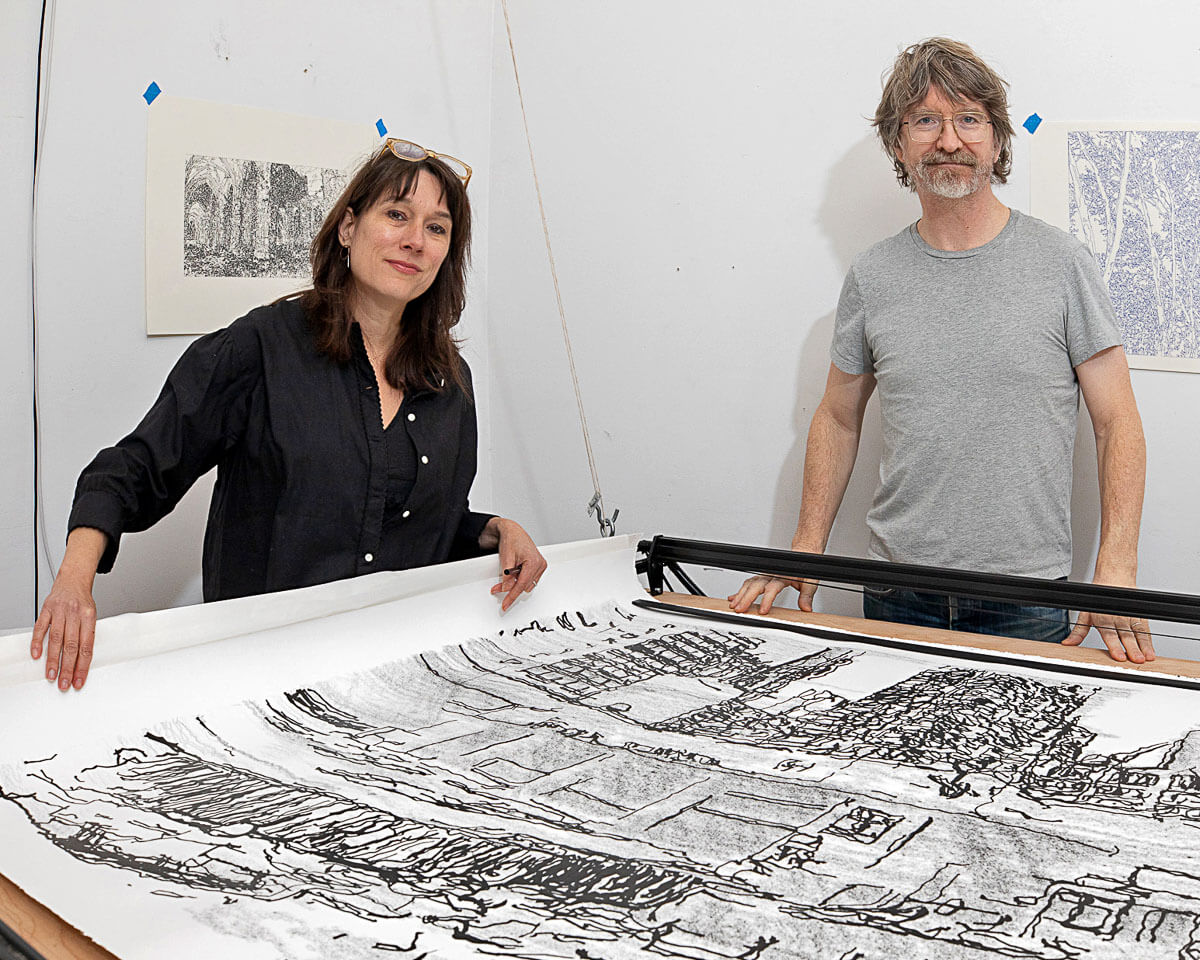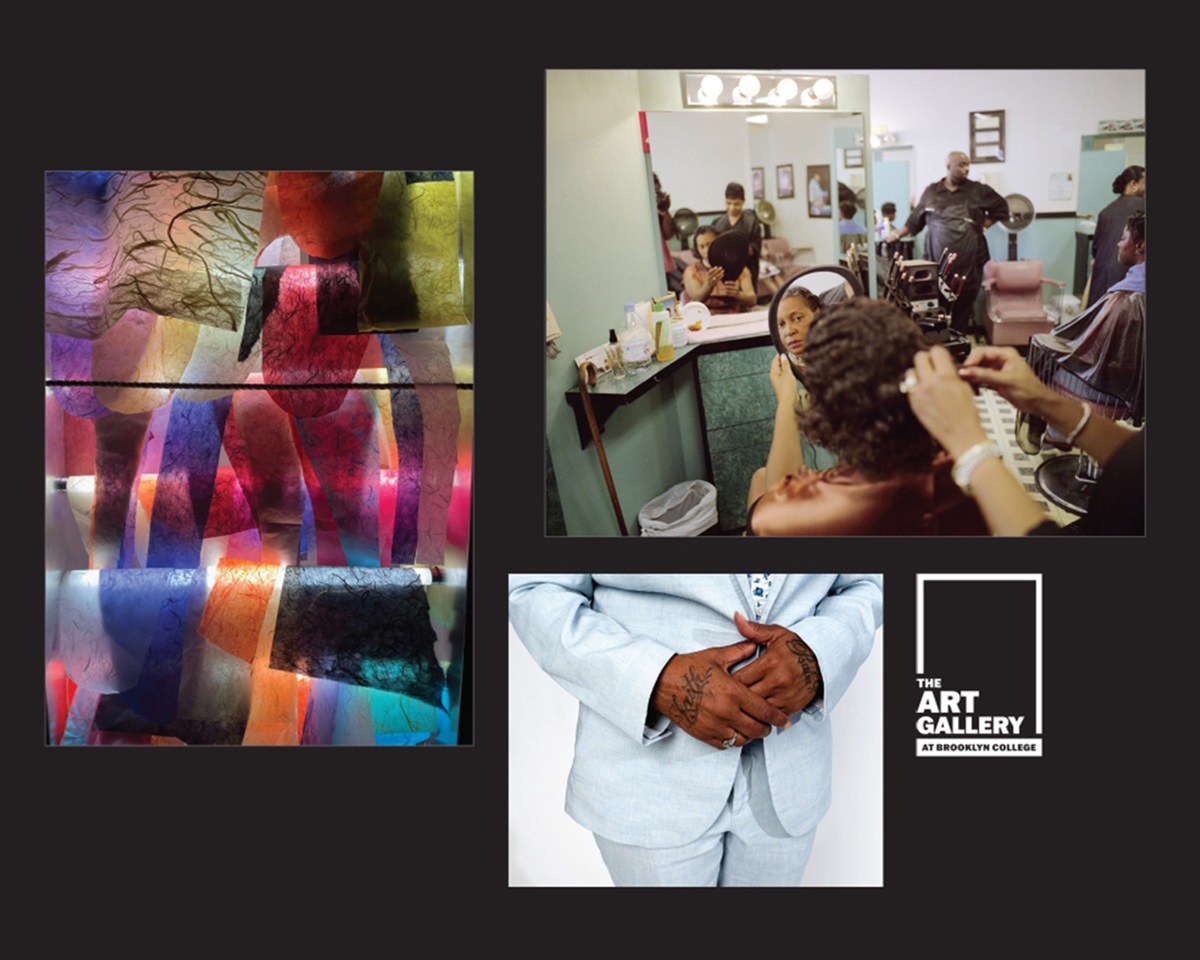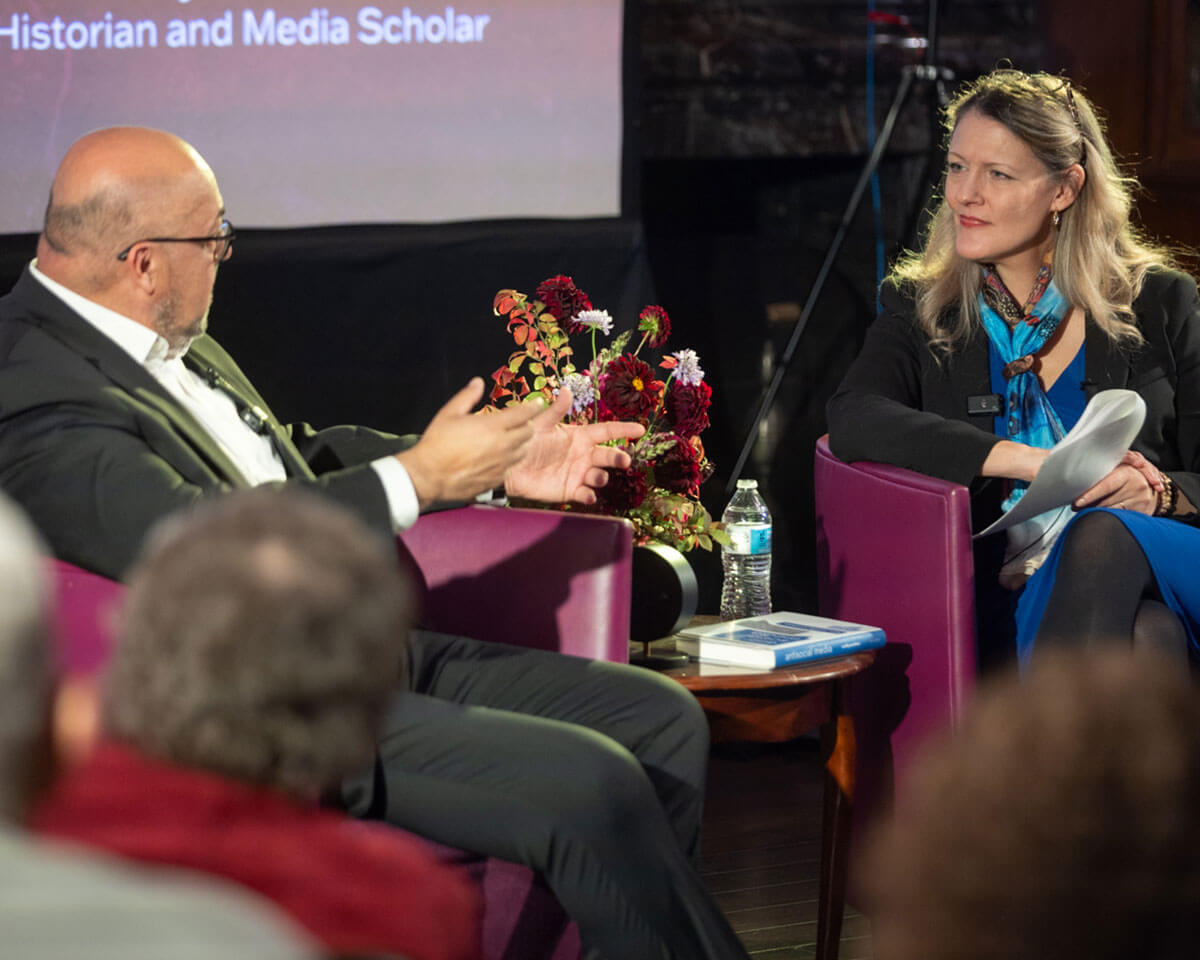When the chief curator of the New Frontier program at the Sundance Film Festival asked Art Professor Jennifer McCoy and her artist husband, Kevin McCoy, why they wanted their new NFT project The Inside World at the festival, Jennifer said “it is the future of storytelling.”
To fully appreciate their chutzpah, it is crucial to understand that they were present for the genesis of NFTs, or non-fungible tokens, which have skyrocketed in popularity in the last year.
In 2014, the NFT—a certificate of ownership attached to an object via blockchain—did not yet exist. That year, Kevin, a veteran digital artist who had compiled an extraordinary amount of research on blockchain, and Anil Dash, a technologist and entrepreneur, were presented with a challenge at a conference at The New Museum: Create something new, with no limits to what it could be, and do it in one day. To find a way for artists to profit from their viral works, the pair married blockchain technology, which holds information in chains of blocks that cannot be altered or lost, to digital art and came up with what is widely considered the first NFT (the term emerged in 2017).
“It was about the skin in the game that commerce brings to art,” Jennifer says, as well as a look at who controls art, who decides what art gets bought and sold, and what goes into museums and galleries.
Although the concept of art, technology, and commerce intersecting in this new form was slow to emerge in the public arena, in the past couple of years, the McCoys found themselves at the dead center of a true phenomenon.
The couple immediately “realized that this was another way that digital artists could enter the playing field on a more or less equal level with artists who use traditional tools and media,” says Jennifer.
They were looking at the future of art.
The McCoys, who for more than two decades have been creating works that combine film, installations, new media, and technology, first tested the NFT waters in 2019, when they donated Private Key/Public Key, a three-minute 16mm film, to the Whitney Museum of American Art. As part of the donation, the couple opened ownership to 50 people, who would receive digital certificates based on blockchain, and become donors of record to the museum. The prospective owners were required to submit an essay explaining why they wanted to be a donor.
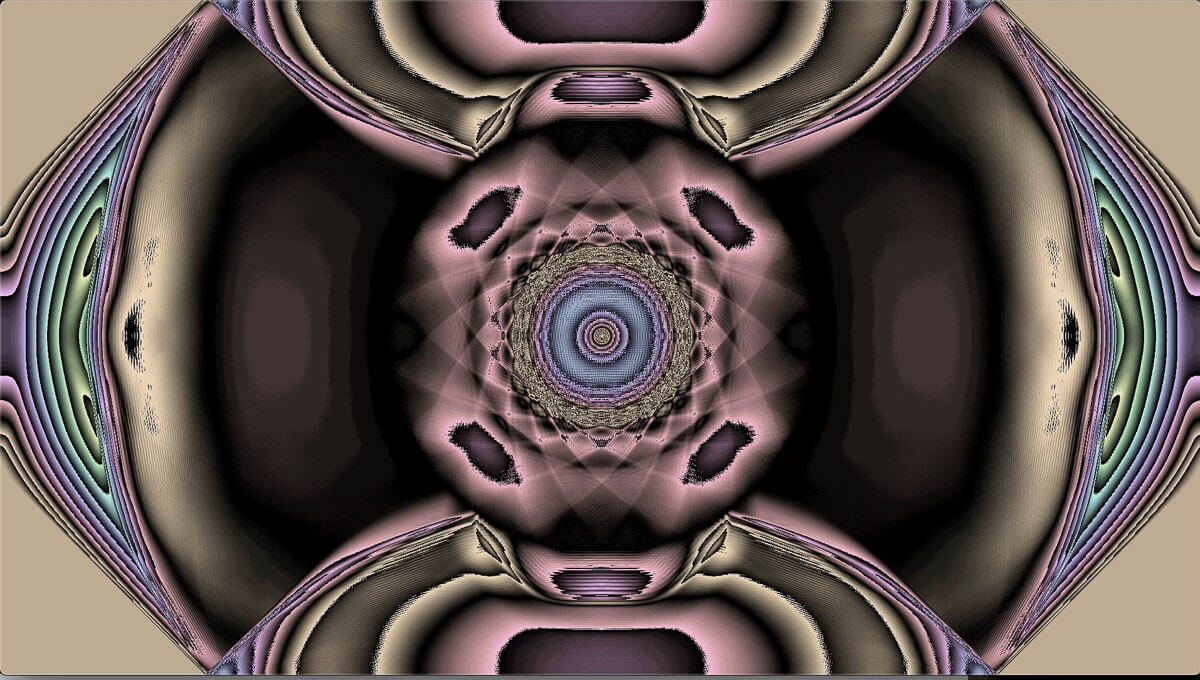
Quantum Leap (2020). Credit: Kevin and Jennifer McCoy, 2020
Quantum, the piece of digital art that Kevin attached to that first NFT prototype back in 2014, sold at Sotheby’s for $1.4 million last summer.
And there is Sundance and The Inside World, a sci-fi thriller game set in Las Vegas. At the start of the festival, the McCoys released 4,000 NFT playing cards used to participate in a narrative game—think Dungeons & Dragons—that allows players to unlock a virtual future Las Vegas that is run solely by artificial intelligence. The goal is to unravel a mystery surrounding a rumor that one of the AI workers might be human.
“Ultimately, we’re giving people the opportunity to own a piece of collectible art [attached to an NFT], that is also a ticket that will give them access to the game on Discord,” she says, referencing an instant messaging and digital distribution platform. In addition, the funds collected from participants will help finance the completion of the project.
To create The Inside World, the couple collaborated with artist Peter Rostovsky, who has taught as an adjunct professor in the M.F.A. art program at Brooklyn College, and filmmaker Annie Howell, who teaches at both The City College of New York and New York University.
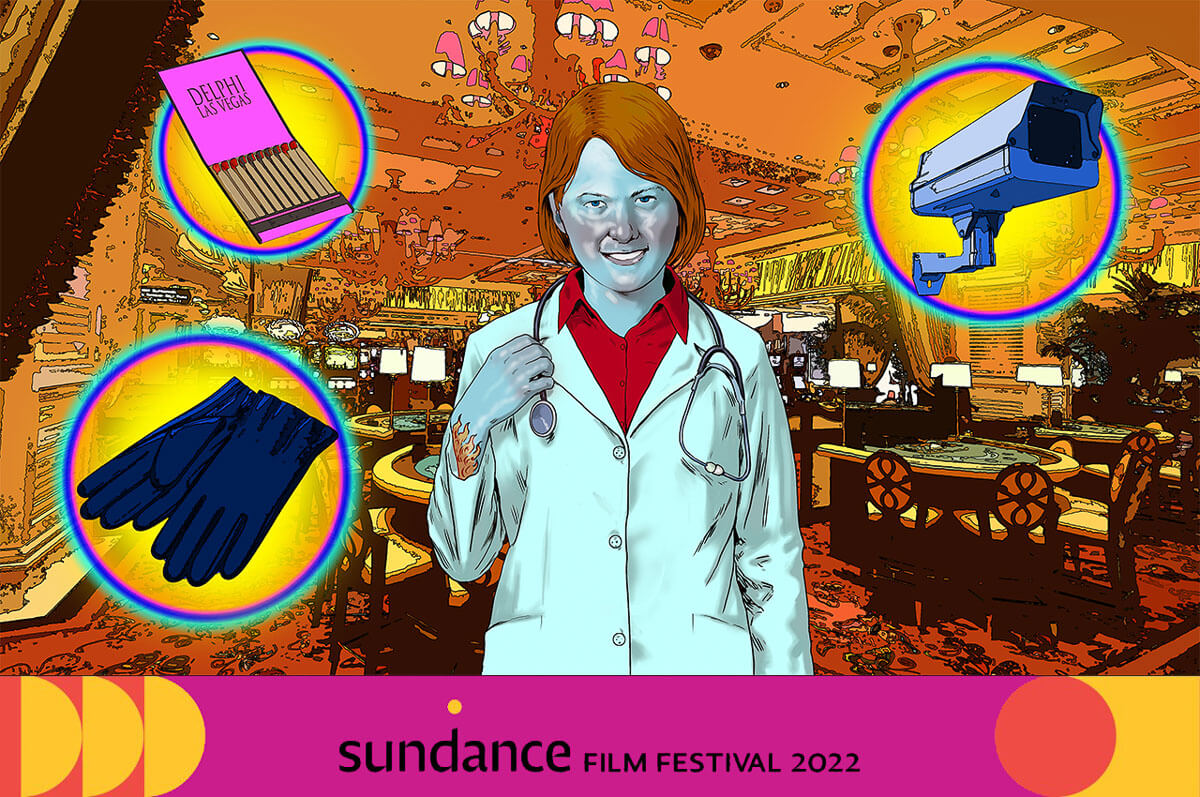
An image of an NFT from The Inside World.
“It’s been a world-building exercise,” says Jennifer. “Kevin and I both have one foot in the film world and one foot in the art world. This is our first project that really bridges digital art and filmmaking. And there is Peter, who comes from an aesthetic steeped in the history of the graphic novel and painting, and Annie, who is the screenwriter on the project.”
Although the New Frontier program was virtual this year, the McCoys, who had showed at Sundance in 2006 with their installation Our First Date, say it was an enriching experience.
“The learning curve on how to describe our project was steep. But having have all these writers and artists on our Discord pitching ideas and giving us images and suggestions, some of which we are adopting for characters, was kind of a big writing bootcamp,” says Jennifer.
Back on campus, Jennifer brings to the classroom some of the techniques she and Kevin, a professor of art at New York University, use to create their works. It’s a dynamic that Jennifer says she tries to recreate in a collaborative strategy class she teaches.
“Using technology is an important strategy for collaboration,” she says. Jennifer tries to involve as many students as possible on the couple’s projects.
“Some have been on the sets of our films, others in the studio,” Jennifer says. “Our whole practice is involved with how to bring people into this environment filled with technology and think about new art-making strategies.”
As for the near future, the McCoys are busy writing new episodes of The Inside World and working toward creating live events so viewers can “inhabit the story,” says Jennifer. “We are also in production in upstate New York and Vermont on a short film called Quitter, which will round out the trilogy of films begun in 2016.”
Return to the BC Magazine

